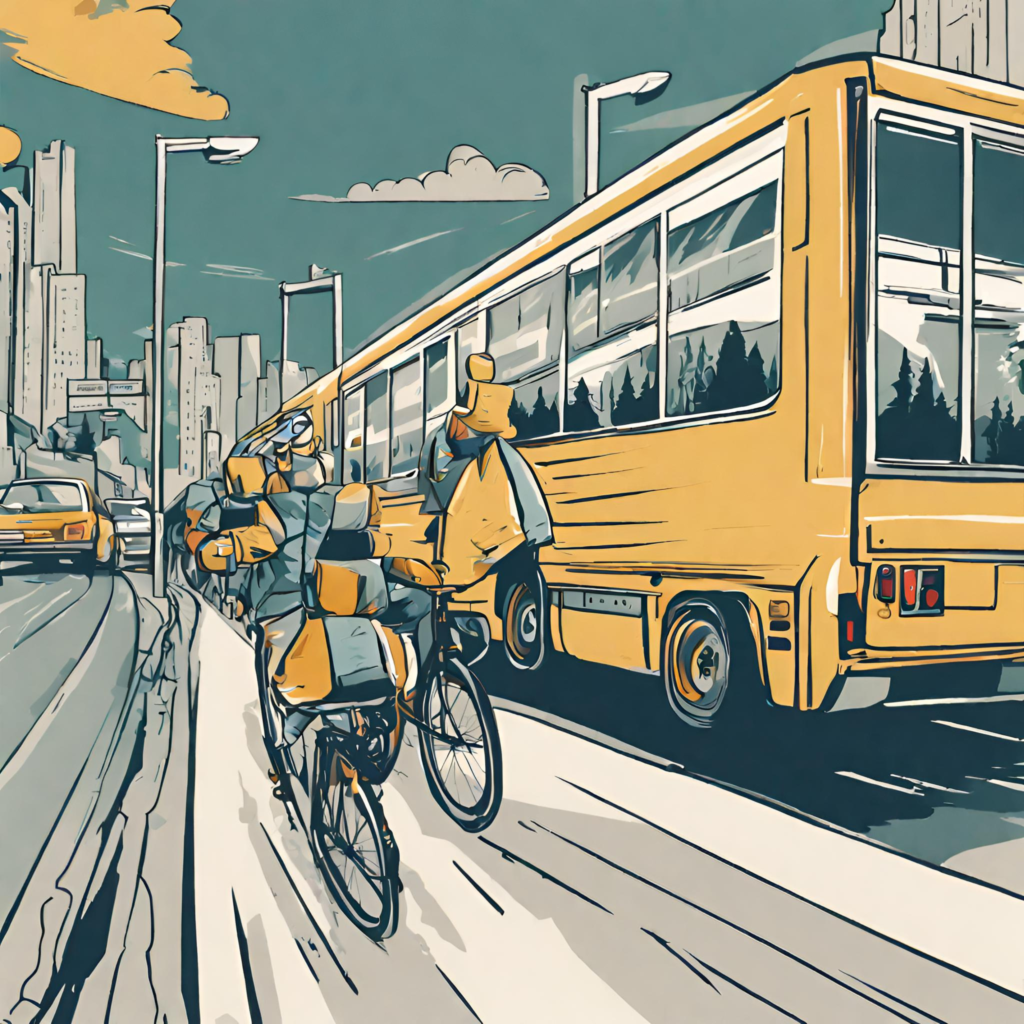In today’s fast-paced world, the reality of long-distance commuting is becoming increasingly common. This trend, driven by factors like job opportunities in urban centers and affordable housing in suburban or rural areas, presents a set of unique challenges. From extended time on the road to increased wear on vehicles and the toll on personal well-being, long-distance commuting is a significant aspect of many people’s daily lives. This article explores various strategies to help make these lengthy commutes more manageable and less burdensome.
Understanding the Dynamics of Long-Distance Commuting
Long-distance commuting often involves traveling significant distances, sometimes spanning various geographic regions, to get to the workplace. It’s not just about the miles; it’s the time spent traveling that defines the long-haul commute. With more individuals facing commutes that last over an hour each way, understanding how to navigate this daily journey is essential for maintaining a healthy work-life balance and overall well-being.
Planning and Preparing for the Commute
Effective planning and preparation can transform a long commute:
- Route Planning: In-depth knowledge of your route is crucial. Utilize traffic forecasting features on apps like Google Maps or Waze to plan your departure times and routes. Being aware of peak traffic times and potential bottlenecks can help in avoiding delays.
- Vehicle Preparation: Ensuring that your vehicle is well-maintained and ready for the journey is key. This includes regular checks on fluid levels, brake systems, tire tread, and pressure, as well as ensuring that your vehicle’s servicing is up to date. Keeping an emergency kit, including items like a spare tire, jumper cables, a flashlight, and basic tools, can prepare you for unexpected situations on the road.
Accommodation Strategies for Extreme Commuters
For those facing exceptionally long commutes, considering overnight accommodation options can be a game-changer:
- Short-Term Rentals: Exploring short-term rental options or even weekday rentals close to your workplace can reduce the strain of daily travel. Websites like Airbnb or short-term lodging facilities offer various options that cater to different budget levels.
- Rest Stops and Safe Parking: For those who can manage brief overnight stays in their vehicles, identifying safe, legal, and well-equipped rest stops is important. Many rest areas provide facilities like restrooms and food services, which can be invaluable during long trips.
- Employer Assistance: In some cases, employers may offer support for long-distance commuting, such as flexible work hours, remote work options, or even lodging allowances. It’s worth discussing these options with your employer to see what accommodations can be made.
Managing Fatigue and Staying Alert
Addressing the risk of fatigue is critical for safe long-distance commuting:
- Regular Breaks: Planning your journey with breaks in mind is crucial. Every couple of hours, take a break to stretch, rest, or have a snack. This not only helps in reducing fatigue but also keeps you alert and focused on the road.
- Healthy Snacking: Keep a stock of healthy snacks and water in your car. Staying hydrated and nourished with snacks like fruits, nuts, or protein bars can help maintain energy levels during long drives.
- Engaging Audio Content: A carefully curated playlist, interesting podcasts, or audiobooks can make the journey more engaging and less monotonous. This can be particularly helpful in keeping the mind alert during longer stretches of driving.

The Role of Technology in Easing Long Commutes
Technology plays a pivotal role in streamlining long commutes:
- GPS and Traffic Apps: Advanced GPS navigation and real-time traffic apps like Waze or Google Maps can significantly reduce travel time by suggesting the fastest routes and alerting drivers to traffic jams, road closures, or accidents.
- Entertainment and Alertness: A diverse range of apps such as Spotify for music, Audible for audiobooks, and various podcast platforms can keep the mind engaged, making long drives more enjoyable and less monotonous.
- Rest Stop Locators: Utilizing apps like iExit or Roadtrippers can help identify convenient rest stops, gas stations, and safe overnight parking spots, adding an element of safety and convenience to long commutes.
Balancing Work and Life with a Long Commute
Effective work-life balance strategies are essential:
- Productive Use of Time: Transform commuting time into a productive endeavor. Listening to industry-related audiobooks or language learning podcasts can be an excellent way to utilize this time for personal or professional growth.
- Setting Boundaries: Establish clear boundaries between work and personal life. Ensure that the time spent at home is quality, undisturbed time, allowing for relaxation and family interaction.
Health and Wellness Considerations
Addressing health concerns associated with long commutes is vital:
- Staying Active: For those with sedentary jobs, incorporating physical activities like walking, cycling, or even using standing desks at rest stops can be beneficial.
- Mental Well-being: Engage in stress-reducing activities such as meditation, listening to calming music, or practicing deep-breathing exercises. Apps like Headspace offer guided meditation sessions that can be helpful.
- Ergonomic Adjustments: Making ergonomic adjustments in the vehicle, such as seat positioning and lumbar support, can reduce the physical strain of long hours spent driving.
Financial Aspects of Long-Distance Commuting
Financial planning is key to managing the costs associated with long commutes:
- Fuel-Efficient Driving: Techniques like gradual acceleration and deceleration, maintaining a consistent speed, and avoiding excessive idling can improve fuel economy.
- Cost-Sharing Strategies: Exploring carpooling options through platforms like CarpoolWorld or Zimride can lead to shared commuting costs, making long commutes more economical.
- Budgeting for Commuting Costs: Keep track of all commuting-related expenses, including fuel, vehicle maintenance, tolls, and parking fees, to understand and manage the financial impact of your commute.
Conclusion
Navigating the intricacies of long-distance commuting requires a mix of careful planning, technological assistance, health and wellness considerations, and financial management. By integrating these strategies, long-distance commuters can mitigate the challenges associated with their travel, making their commutes not only bearable but also a productive and enriching part of their day. Adopting these practices can transform the commuting experience into a more positive and sustainable aspect of daily life.



